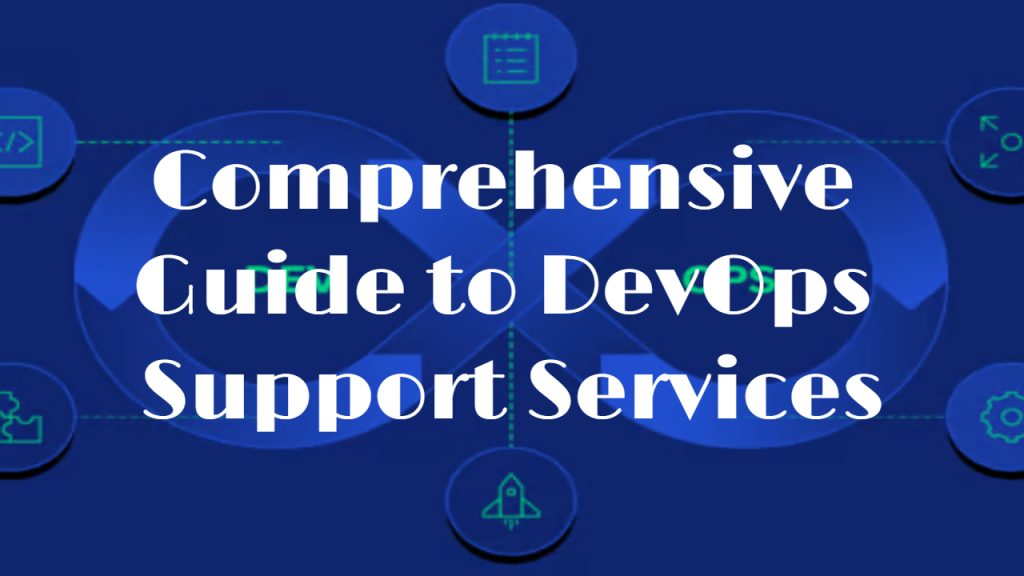
Introduction to DevOps Support Services
Introduction
- Defining DevOps Support Services:
- DevOps is a set of practices that combines software development (Dev) and IT operations (Ops) to shorten the development lifecycle and provide continuous delivery of high-quality software.
- DevOps support services involve helping organizations implement DevOps practices to improve collaboration, efficiency, and productivity across their IT departments.
- The Growing Importance of DevOps:
- As businesses increasingly rely on technology, the need for agile and efficient IT operations becomes crucial.
- DevOps addresses these needs by fostering a culture of collaboration and continuous improvement.
Benefits of DevOps Support Services
- Increased Efficiency:
- Automation of repetitive tasks reduces human error and frees up resources for more strategic work.
- Streamlined processes lead to faster development cycles and quicker time-to-market.
- Enhanced Collaboration:
- DevOps breaks down silos between development and operations teams, promoting a culture of collaboration and shared responsibility.
- This collaboration leads to better communication and faster problem resolution.
- Improved Quality and Reliability:
- Continuous integration and continuous delivery (CI/CD) practices ensure that code is tested and deployed consistently.
- Monitoring and feedback loops help identify and address issues before they impact users.
- Research Reference:
- According to a study by Puppet, organizations with mature DevOps practices deploy code 46 times more frequently and have a five times lower change failure rate than those with lower DevOps maturity.
Exploring DevOps, SRE, and DevSecOps Support Services
DevOps Support Services
- Key Components:
- CI/CD Pipelines: Automation of build, test, and deployment processes to ensure rapid and reliable software delivery.
- Infrastructure as Code: Managing and provisioning infrastructure through code, enabling version control and consistency.
- Benefits:
- Faster time-to-market with frequent and reliable releases.
- Improved collaboration between development and operations teams.
Site Reliability Engineering (SRE) Support Services
- Overview of SRE:
- SRE applies software engineering principles to infrastructure and operations problems, focusing on system reliability and performance.
- Key Practices:
- Monitoring and Incident Response: Proactive monitoring and automated incident response to maintain system uptime.
- Performance Optimization: Continuous performance tuning and capacity planning to meet service level objectives (SLOs).
- Benefits:
- Enhanced system reliability and performance.
- Reduced downtime and improved customer satisfaction.
DevSecOps Support Services
- Introduction to DevSecOps:
- DevSecOps integrates security practices into the DevOps process, ensuring security is a shared responsibility throughout the development lifecycle.
- Key Practices:
- Security Automation: Automating security tests and vulnerability scans to identify and address security issues early.
- Compliance and Risk Management: Ensuring compliance with industry standards and regulations through continuous monitoring.
- Benefits:
- Improved security posture with early detection of vulnerabilities.
- Reduced risk of security breaches and compliance violations.
- Research Reference:
- A report by Gartner indicates that by 2023, 70% of DevSecOps initiatives will incorporate automated security testing as part of the CI/CD pipeline, up from less than 30% in 2021.
The Role of Freelancing in DevOps Support Services
The Rise of Freelance DevOps Services
- Why Businesses are Turning to Freelancers:
- Access to a diverse talent pool with specialized skills.
- Flexibility to scale services based on project needs and budget constraints.
- Benefits of Freelancing for Companies:
- Cost savings on hiring and training full-time employees.
- Ability to quickly adapt to changing technology landscapes.
Freelancing Opportunities with DevOpsSupport.in
- About DevOpsSupport.in:
- DevOpsSupport.in is a platform that connects businesses with freelance DevOps, SRE, and DevSecOps professionals.
- They offer tailored solutions for companies and individuals looking for expert support in implementing DevOps practices.
- Services Offered:
- DevOps Support: CI/CD setup, cloud migration, and infrastructure automation.
- SRE Support: Monitoring, incident management, and performance optimization.
- DevSecOps Support: Security assessments, compliance checks, and integration of security practices.
- Why Choose DevOpsSupport.in:
- Access to a network of experienced professionals with a proven track record.
- Customized solutions tailored to the unique needs of each client.
- Research Reference:
- A survey by Upwork found that 73% of hiring managers are now incorporating freelancers to help with specialized IT projects, indicating a growing trend towards freelance support in the tech industry.
Implementing DevOps Support Services for Business Success
Steps to Implement DevOps Support Services
- Assessing Your Current IT Infrastructure:
- Conduct a thorough assessment of your current IT environment to identify areas for improvement.
- Determine the key goals and objectives for implementing DevOps practices.
- Choosing the Right Support Services:
- Evaluate the specific needs of your organization and select the appropriate DevOps, SRE, and DevSecOps services.
- Consider the benefits of freelancing to access specialized skills and expertise.
- Building a DevOps Culture:
- Foster a culture of collaboration and continuous improvement within your organization.
- Encourage cross-functional teams to work together towards common goals.
- Measuring Success and Continuous Improvement:
- Establish key performance indicators (KPIs) to measure the success of your DevOps initiatives.
- Continuously gather feedback and make adjustments to improve processes and outcomes.
The Future of DevOps Support Services
- Evolving Technology Landscape:
- Emerging technologies such as AI, machine learning, and automation are shaping the future of DevOps.
- Organizations must stay ahead of these trends to remain competitive.
- Long-Term Benefits for Businesses:
- By embracing DevOps support services, businesses can achieve greater agility, efficiency, and innovation.
- DevOps practices enable organizations to deliver high-quality software faster and more reliably.
- Conclusion:
- DevOps support services are essential for businesses looking to thrive in the digital age.
- By leveraging these services, companies can unlock new opportunities for growth and success.
- Research Reference:
- According to a study by DORA (DevOps Research and Assessment), organizations that adopt DevOps practices experience 24 times faster recovery from failures and three times lower change failure rates, demonstrating the tangible benefits of these practices.